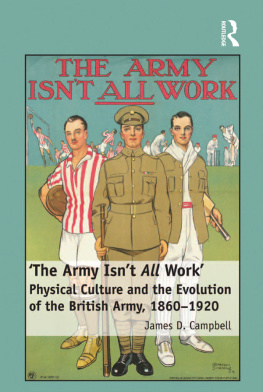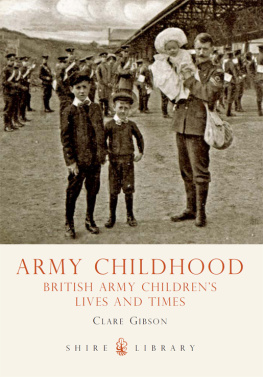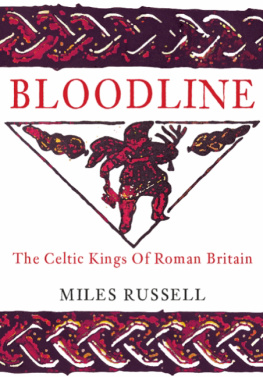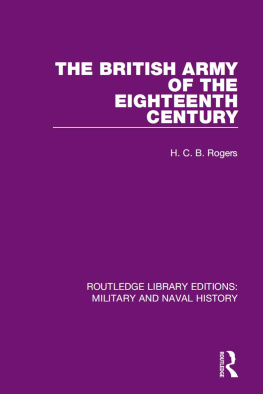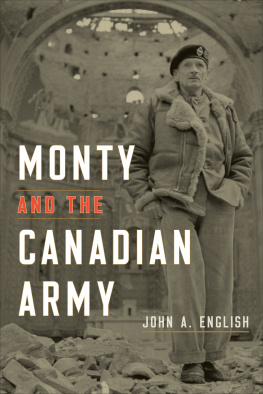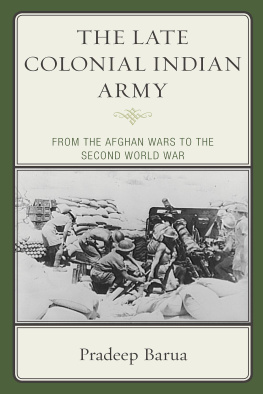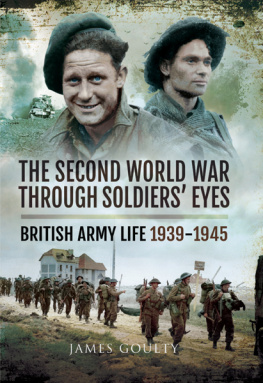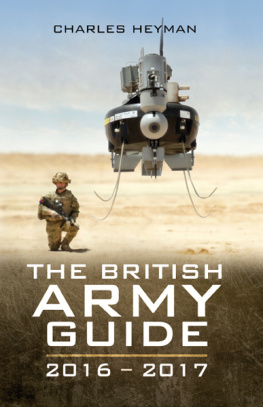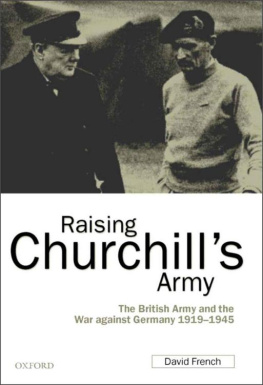THE ARMY ISNT ALL WORK
To My Father
Thomas Philip Campbell Jr.
19371996
And to the professionals who go to war not for an ideal,
but because it is their job.
The Army Isnt All Work
Physical Culture and the Evolution of the British Army, 18601920
JAMES D. CAMPBELL
University of Maine, USA
First published 2012 by Ashgate Publishing
Published 2016 by Routledge
2 Park Square, Milton Park, Abingdon, Oxon OX14 4RN
711 Third Avenue, New York, NY 10017, USA
Routledge is an imprint of the Taylor & Francis Group, an informa business
Copyright James D. Campbell 2012
James D. Campbell has asserted his right under the Copyright, Designs and Patents Act, 1988, to be identified as the author of this work.
All rights reserved. No part of this book may be reprinted or reproduced or utilised in any form or by any electronic, mechanical, or other means, now known or hereafter invented, including photocopying and recording, or in any information storage or retrieval system, without permission in writing from the publishers.
Notice:
Product or corporate names may be trademarks or registered trademarks, and are used only for identification and explanation without intent to infringe.
British Library Cataloguing in Publication Data
Campbell, James D.
The Army Isnt All Work: Physical Culture and the Evolution of the British Army,
18601920.
1. Great Britain. Army Physical training History 19th century. 2. Great Britain.
Army Physical training History 20th century. 3. Great Britain. Army Sports
History 19th century. 4. Great Britain. Army Sports History 20th century.
5. Military sports Great Britain History 19th century. 6. Military sports
Great Britain History 20th century.
I. Title
355.5094109034dc23
Library of Congress Cataloging-in-Publication Data
Campbell, James D., 1964
The Army Isnt All Work: Physical Culture and the Evolution of the British Army,
18601920 / James D. Campbell.
p. cm.
Includes bibliographical references and index.
1. Great Britain. Army Physical training History 19th century. 2. Great Britain. Army
Physical training History 20th century. I. Title. II. Title: Physical culture in the
evolution of the British Army, 18601920.
U325.G7C36 2012
355.5dc23
2012010737
ISBN: 978-1-409-43696-6 (hbk)
ISBN: 978-1-315-61260-7 (ebk)
Contents
List of Figures
Acknowledgements
In 1996 I undertook a research project to discover whether there was a connection between the changes in the British Army between the Crimean War and the First World War, and the appearance in Britain during that same time of what we know now as Modern Sport. I began this project at the suggestion of my graduate advisor, Dr. William Baker of the University of Maine. He is an historian of Britain, but first and foremost he is an historian of sport and all the ways in which sport has been a part of peoples lives and their societies since ancient times. I suspect that he had little interest in supervising the research of someone who thought he was really only interested in the Victorian British Army and the Boys Own tales of how it spread the benefits of British civilization around the globe. After many years of work, of wrong turns and exhilarating discoveries, and hopefully some maturing (but not a loss) of that original fascination with the Soldiers of the Queen, that research project is now this book.
It has taken far longer than I had ever intended for this manuscript to reach publication. Many thanks to the editors, readers, and staff of Ashgate Publishing who have made this possible. It was more difficult than I had thought it would be to undertake this effort while still serving as an active Army officer. Military duties, including the untimely intervention of the ongoing war, have a way of interrupting what has really been an intellectual hobby. I can say, however, that among other things my enforced sabbatical in Afghanistan allowed me to get a lot of reading done, and to see first hand the results of the spread of the British Armys physical culture. In the spring of 2006 while waiting to leave a small forward operating base in Helmand Province, in the first-ever Coalition Forces convoy to the then still-obscure town of Sangin, I spent some time watching our Afghan National Army partners play cricket in a dusty and windy patch of desert. It was a poignant event for me on several levels.
In an endeavor such as the completion of a book project like this, one realizes very quickly that without the assistance of many people, completing the project would be impossible. I have a long list of people to whom I owe muchI only hope that I can eventually repay some of them with more than a citation at the beginning of a manuscript. More than any other person, I owe a deep debt of gratitude to Dr. Baker. He started working with me when this project began as a Masters thesislargely as the result of his suggestions. Little did either of us know that there would be such fertile ground in that field as to lead me to develop the topic into what has become this book. Dr. Bakers ideas, encouragement, admonishment, and superb editing have made this document what it is.
There are many others at the University of Maine who have contributed in a large way to this project as well. Dr. Richard Blankes critical eye and promptings about comparison with Continental armies forced me to carefully maintain focus on the validity of sources and ideas. Dr. Janet TeBrake encouraged me to understand the connections between the British Army and its imperial counterparts, as well as the influence of the Army on the subjects of the Empire. Professor Robert Whelan, with his own interest in the nature of military leadership, and in how soldiers deal with the environment of war, was a kindred spirit and a check on many of my ideas. And finally, my mentor from Kings College London, Dr. David McLean, gave timely suggestions as to sources, and his prodding me to pursue a complete and in-depth review of those sources led me to discover much material that might otherwise have escaped me. I thank Dr. Mclean especially for his personal commitment to my project.
There are many others who deserve my thanks. Dr. William TeBrake, past Chairman of the Department of History at the University of Maine, and his successors, Dr. Scott See and Dr. Nathan Godfried, hired me to teach American Military History and Sports History. My experience doing that has made this manuscript more informed. I also thank my brother Ned Campbell and his wife Emily Hayes Campbell, for their hospitality, interest, and encouragement on my many research trips to London. I am grateful to my friends and colleagues while I was assigned to the Army ROTC battalion at the University of Maine, for their interest, encouragement, and solicitude in allowing me to focus on things other than strictly military business. Thanks also to my colleagues in the Maine Army National Guard, for their friendship and for abiding my obsession with historical esoterica that was no doubt trying, at times, for focused military professionals.
My great friend and comrade Major Charles Dobson, late of the 1st Battalion Worcestershire and Sherwood Foresters, was not only important in helping me to understand the sometimes confusing nuances of British military culture, but he was also an invaluable sounding board for many ideas during our shared time in combat in Afghanistan. Charles is a Rugby football man, but he did grudgingly acknowledge the role played by other sports, as well as PT, in the British Army.

